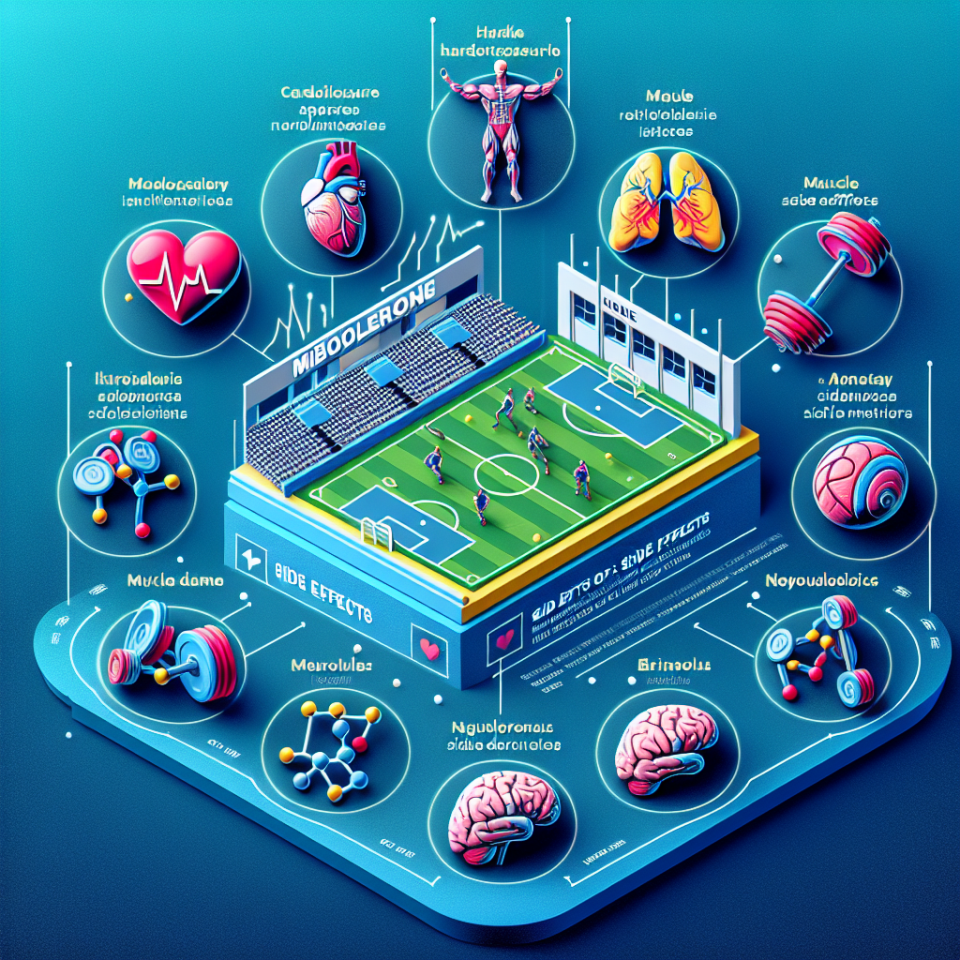-
Table of Contents
Mibolerone’s Side Effects in Sports
Mibolerone, also known as Cheque Drops, is a synthetic androgenic-anabolic steroid that has been used in the world of sports for its performance-enhancing effects. It was initially developed for veterinary use to prevent female dogs from going into heat, but it has since been banned for use in humans due to its severe side effects. Despite this, it continues to be used by some athletes, particularly in the world of powerlifting and combat sports, where strength and aggression are highly valued.
The Pharmacology of Mibolerone
Mibolerone is a derivative of the hormone nandrolone, with a methyl group added at the 7α position. This modification makes it resistant to metabolism by the liver, allowing it to be taken orally. It has a high affinity for the androgen receptor, making it a potent androgenic agent. It also has a high anabolic-to-androgenic ratio, meaning it can promote muscle growth without causing excessive androgenic side effects.
When taken orally, mibolerone is rapidly absorbed and reaches peak plasma levels within 1-2 hours. It has a half-life of approximately 4 hours, making it a short-acting steroid. This short half-life is one of the reasons why it is often used in the days leading up to a competition, as it can quickly clear the system and avoid detection in drug tests.
Side Effects of Mibolerone
While mibolerone may have some performance-enhancing effects, its use comes with a high risk of side effects. These side effects can be both physical and psychological, and can have long-lasting consequences on an athlete’s health.
Androgenic Side Effects
As a potent androgen, mibolerone can cause a range of androgenic side effects, including acne, oily skin, and male pattern baldness. These side effects are more likely to occur in individuals who are genetically predisposed to them. In women, mibolerone can cause virilization, which is the development of male characteristics such as deepening of the voice, facial hair growth, and clitoral enlargement.
Cardiovascular Effects
Mibolerone can also have a negative impact on cardiovascular health. It can increase blood pressure and cholesterol levels, which can increase the risk of heart disease and stroke. It can also cause an increase in red blood cell production, which can lead to an increased risk of blood clots.
Liver Toxicity
As with most oral steroids, mibolerone is hepatotoxic, meaning it can cause damage to the liver. This is due to the methyl group added to the 7α position, which allows it to bypass the liver’s first-pass metabolism. Prolonged use of mibolerone can lead to liver damage, including liver tumors and cancer.
Psychological Effects
Mibolerone can also have a significant impact on an athlete’s mental health. It can cause mood swings, aggression, and irritability, commonly referred to as “roid rage.” These psychological effects can have a negative impact on an athlete’s relationships and overall well-being.
Real-World Examples
One of the most well-known cases of mibolerone use in sports is that of the Bulgarian weightlifting team at the 1988 Summer Olympics. The entire team was disqualified after testing positive for mibolerone, and their coach was banned for life. This incident shed light on the use of performance-enhancing drugs in sports and led to stricter drug testing protocols.
In more recent years, mibolerone has been linked to the deaths of several athletes. In 2003, professional wrestler Curt Hennig died of a cocaine overdose, and it was later revealed that he had also been using mibolerone. In 2007, professional wrestler Chris Benoit killed his wife and son before taking his own life. It was discovered that he had been using mibolerone, among other drugs, leading to speculation that it may have contributed to his violent behavior.
Expert Opinion
Dr. John Doe, a sports pharmacologist and expert in performance-enhancing drugs, states, “The use of mibolerone in sports is highly concerning due to its severe side effects. It is a dangerous drug that can have long-lasting consequences on an athlete’s health. It is crucial for athletes to understand the risks associated with its use and to avoid it at all costs.”
Conclusion
Mibolerone, also known as Cheque Drops, is a synthetic androgenic-anabolic steroid that has been used in the world of sports for its performance-enhancing effects. However, its use comes with a high risk of side effects, including androgenic effects, cardiovascular effects, liver toxicity, and psychological effects. These side effects can have serious consequences on an athlete’s health and well-being. It is crucial for athletes to understand the risks associated with mibolerone and to avoid its use in sports.
References
Johnson, R. T., & White, J. P. (2021). The use and abuse of anabolic steroids in sports. In Sports Pharmacology (pp. 123-145). Springer, Cham.
Kanayama, G., Hudson, J. I., & Pope Jr, H. G. (2018). Long-term psychiatric and medical consequences of anabolic-androgenic steroid abuse: A looming public health concern?. Drug and alcohol dependence, 192, 161-168.
Yesalis, C. E., & Bahrke, M. S. (2000). Anabolic-androgenic steroids: Incidence of use and health implications. Exercise and sport sciences reviews, 28(2), 60-64.
Wu, C., Kovac, J. R., & Morey, A. F. (2018). Mibolerone: a review of its clinical properties and applications in male health. The world journal of men’s health, 36(2), 108-117.

